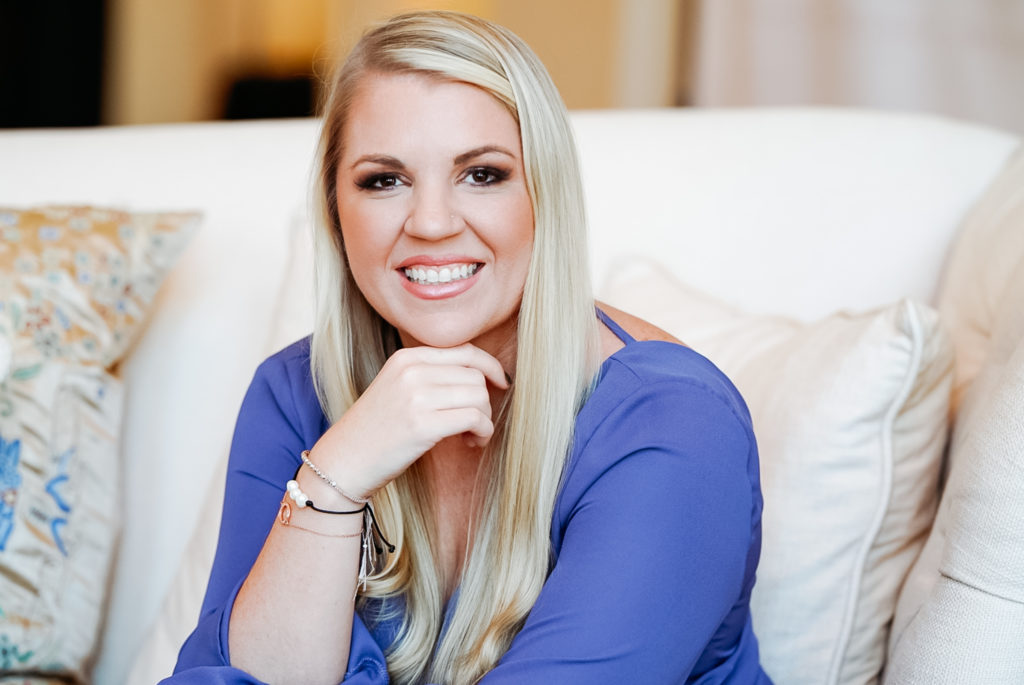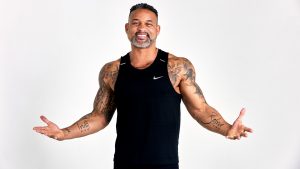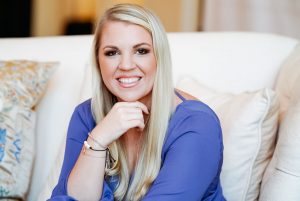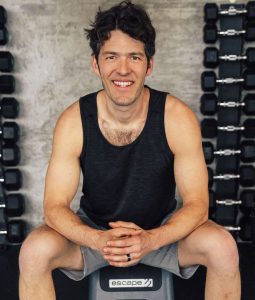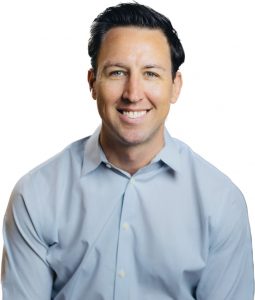SHAWN STEVENSON: This is extra special. We have Wellness Mama herself here on the Family Health and Fitness Summit. This is very, very special. And we’re in for a treat. I’ve spent time with Katie and her family, and I’ve seen it on the ground level. I’ve seen their outcomes and how amazing your kids are, and some things that I didn’t even know were possible. Since leaving your house, things changed at my house, and so welcome to the Summit, Katie, so good to see you.
KATIE WELLS: Thank you so much for having me. I love that you’re doing this, and I’m so grateful to get to be part of it.
SHAWN STEVENSON: Let’s go. This is what I’m talking about. So we’re gonna start with the big picture. Quick question, first and foremost, why is family health and wellness important to you?
KATIE WELLS: Yeah, I’ll give you the short version for the sake of time, but largely my… How I got into the health and wellness world was two-fold in having my own health struggles and turning to my journalism background to research answers, and then around the same time, reading that for the first time in two centuries, the current generation of American children would have a shorter life expectancy than their parents, and it’s no secret that all of these chronic health issues are on the rise across the board, but especially in children, which is where it’s most alarming. And I also think that the change also starts at that level, at the family level, and that that actually is the most powerful place for it to start, and the only place that actual, impactful, lasting change can start.
KATIE WELLS: And I often say on my podcast, and I’m so grateful every day to get to have the ability to speak to this community of moms, because I think moms especially are an absolute force of nature, and that if things are gonna shift in society, almost always it begins with families and with moms. And so I think that’s what drives me every day.
KATIE WELLS: That’s the thing that keeps me awake at night. That’s what gets me up in the morning is I just see the beautiful power of families and of how we can shift, truly shift, society through the choices we make in our families.
SHAWN STEVENSON: Awesome, so powerful. I love that, and it’s really just you have that deep internal motivation, it’s something bigger than just yourself, and you are literally moving mountains and transforming the health culture of so many different families with what you’re doing, so it’s really special. Now for you personally, what are three things that you’ve done, personally, to create a culture of health and connection within your own family?
KATIE WELLS: Well, I love this question, and I love that you used the word culture, because I think that’s actually a huge key to everything that we’re gonna talk about, is not just trying to create habits though those are important too, and certainly not trying to create rules though those have their time and their place, but to really create a culture that our kids get to feel like they’re part of, because that’s what helps them actually build that foundation and internalize it.
KATIE WELLS: And so for me, when it comes to health and wellness there would be a three-fold thing around that, the first being, I think modeling is always the most important, and especially when I speak to moms, I love to talk about this piece. Because we all hear the cliches about, “You have to put on your own oxygen mask first,” and all that. I also realized, being a mom of six, just how difficult that can be to do sometimes, and how keeping our own culture in mind and keeping that priority first is actually one of the greatest gifts we can give our kids because they listen to what we say, sometimes, but they pay attention to what we do, and so by prioritizing our health ourselves, we actually are giving them permission to do that too.
KATIE WELLS: But it can be such a temptation as a parent to put yourself last, and I think it’s actually much more powerful to model those habits first, and it is a silly example of this, I have had a couple of my kids, at different times, that resisted bedtime, and we all know how important sleep is.
KATIE WELLS: We wish we had that magic pill to make them fall asleep that was actually good for them, but that doesn’t exist and they’re human beings with their own free will, and sometimes when they’ve really wanted to resist bed time, I’ve actually switched it and realized I only have control over me. I don’t have control over this person, I can guide them, I can model for them, but I can’t force them, so what I’m gonna do is actually set the example and I’m gonna go to bed early and they’re gonna stay up late and I’m gonna show with my example, and also remove myself from the equation, so it’s not as fun to stay up ’cause nobody else is awake.
[laughter]
KATIE WELLS: But I’m gonna lead by example, and that actually was much more effective at getting them to want to go to bed, than fighting the battle every night to force them to go to bed, and it’s a silly example, but I feel like that applies across the board in parenting, that what we do and how we lead is so much more impactful, so I always like to keep that top of mind. Beyond that, I think bringing everybody in the family into the family culture and even our language and how we speak about that is so important, because this was what when I learned the hard way, early on I sort of entered the idea that I was responsible for everything in the house as the mom, and that if anybody else did anything they were “helping me” and that’s actually a very disempowering language when it comes to a family culture, because that doesn’t actually say to them…
KATIE WELLS: “This is our family culture, and you’re participating it as a vital part of it,” it’s saying, “I control this family culture and you are helping me.” And so I learned to slowly shift my language around that and truly, authentically, bring them into the creation of the family culture, and realize that when that happened, they were much more excited to participate in these things because they understood them because it was their decision, and because they felt like they were actually valuably contributing to our family because they were. And so this was things like we built in with the education and the daily habits, things like getting morning sunlight and getting to spend time together as a family or cooking meals together, and them getting to have ownership of cooking whole meals on their own, including getting to pick the ingredients occasionally not doing great at it and failing and wasting things, ’cause that’s all the learning process, and then we would have conversations around that, but I feel like that, when they got to feel they were really truly a part of it, not just my helper, that drastically shifted how our family culture was, and as a short example of that, one day I was recording podcasts all day, and I came home and the kids, on their own with no adult input, had completely redone our kitchen system and basically told me like, “Mom, you’re fired, we realized you’re really busy.
KATIE WELLS: We just created this whole system of who’s gonna clean up after which meal for every single meal throughout the week, and there’s checks and balances, and we have this whole system, and we wrote a charter for it,” and they have run it seamlessly for a year. And it was their initiative because they feel like valuable parts of the family culture. And then beyond that, I would say just anything that you can batch, schedule or move the mental load from, I feel like for moms especially, this is actually the big key, is that mindset piece, it’s not everything we have to get done that stresses us out because we’re actually great at getting stuff done and we’re great multi-taskers, it’s all the open loops from all the things we emotionally manage and mentally manage in our heads all day long.
KATIE WELLS: So if we can solve for the variable of reducing open loops and reducing stress around those things, we actually can get all those things done without a problem often, so whether that’s simple things like meal-planning or bulk cooking, whether that’s simple things like having a routine and a schedule around who’s doing laundry when? Or what time different house projects happen? And getting everybody involved in the creation of that, that often just reduces the mental load aspect in a way that lets us get everything done more effectively, but without that stress piece.
KATIE WELLS: So those are the three parts I start with when it comes to the family culture side.
SHAWN STEVENSON: Oh, it’s so good, so good. So we got modeling, we’ve got allowing our kids to co-create the culture, we’ve got batching/scheduling. And one of the things that I really picked up from you, as you just mentioned right there at the tail end of that, was my youngest son doing his own laundry, I think he was maybe seven at the time, and I think you had a kid that was maybe like four who was doing their own laundry, and I’m just like, “Wait a minute, they could push those buttons?” Of course they can, we just never stopped to teach ’em how to do it, and also within the modeling piece as well, and also co-creating the culture. I had never seen anything like this. I think maybe your youngest was maybe two at the time, I’m just guessing, and they were sitting on the counter eating some freshly grilled grass-fed steak and eating out of a jar of sauerkraut, they were like two. And I’m just like, first of all I have so many questions. How did this happen? When I was that age, I’m gnawing on McDonald’s french fries and fruit punch.
SHAWN STEVENSON: And it’s just cravings are cultural, this is something that you and I have talked about, and we get to create the culture that we have, we think that our kids are so difficult to be able to work together, but that’s the whole point. I think our definition of working together is often times, “I’m gonna do all the work and I want you guys to not make it harder for me.” Whereas you’re saying, let’s invite our kids into this process, as a matter of fact, let’s integrate them into this process so much that eventually, in your case, they took over. That’s bananas, but it’s because you created the culture to where something like that was possible.
KATIE WELLS: Absolutely, I think often we underestimate how incredibly capable they are of not just understanding, but also in making good choices when we let them have the freedom to make those choices. I know you and I have also talked about decisions and any way that we can involve them in the decisions that also helps reduce their resistance, but you’re right, to your point, I think often as parents it’s easy to think of like, “Let’s work together,” meaning, “You’re gonna do it my way.” So two things I try to keep top of mind with my kids, one is, like you touched on, that I don’t do anything for them once they are capable of doing it themselves, because I feel like that’s actually an insult to them as capable human beings, to do it for them, because I’m actually telling them with my actions that they’re not capable of doing it or doing it well enough, so I’m gonna take over.
KATIE WELLS: And the goal is I want them to feel capable and autonomous and safe in their environments and in their bodies, so that’s one of my first principles of parenting. The other is that I really try to keep top of mind and remind myself often that they are not mine, at all, to own, which I know is very logical, but that they are each their own infinite autonomous beings and that I’m not here to direct who they are, but I’m here to help them discover who they are through building that family culture, through building these core skills and then letting them really explore that in whatever way they’re gonna do life. And so those two as first principles guide a lot of the parenting for me, and then there’s of course, many practical applications within that, but to speaking to things that you just said, I feel like when we treat them as if they are infinitely capable, they often will rise or exceed those expectations because they truly are.
SHAWN STEVENSON: Yeah. Wow. Thank you so much. That is so amazing. So amazing. And the thing is also, and I know you’ve taught this too, it’s just some of this stuff… This isn’t necessarily easy but it creates so much more ease in your life when we’re able to acknowledge these things and make some shifts, and so when you were even talking about not doing something for your child that they’re perfectly capable of doing themselves and have experience doing this, and stepping back, and I remember [chuckle], this was not too long ago, my youngest son is… He just turned 12, this might have been two years ago, and I’m feeling a little bit bad saying this, but we were still…
SHAWN STEVENSON: Well not we, my wife was still cutting his pancakes for him or different stuff, like cutting meat for him, I’m just like, “Babe, he can do it himself. I’ve seen him do it,” and of course, when I’ve seen him do it, it’s one of those situations where he’s just like, “I don’t know how,” and he’s poor-cutting or whatever the case might be, and by the way, this was safe, this was a safe condition, but I knew that he’s gonna keep holding this story if…
SHAWN STEVENSON: I’m just like, “Why are you acting like this?” And then I caught that moment of his mom, he’s like, “No, no, no, I got it, I got it,” because she felt that that was something she was doing for him, that made her feel good. We’ve gotta be able to acknowledge the difference and her feeling useful, but also, when those little tasks start to add up to 10, then she would say, “Forget all of it.” And so it’s just being able to offload, outsource some of these smaller things, and it frees up more space for her to do the stuff that she really loves to do, which is making amazing meals for him.
SHAWN STEVENSON: Or getting ahead on what she might be doing, like you just said, batching out meals for his school lunch or whatever the case might be. But when we run ourselves down by trying to do all the small things that our kids are able to do, that’s part of the thing where we end up throwing in the towel. So with that being said, I wanna ask you, in getting our kids involved in the kitchen, how do you get your kids involved in things like cooking and meal preparation? Because again, I saw something that I had never seen before being in your house.
KATIE WELLS: Yeah, well and just briefly to speak to your point, I think you brought up a really important distinction, which is just letting our kids do the things they’re capable of doing doesn’t mean we ignore the things that we can still do together that are great sources of connection. So for instance, I have a 15-year-old daughter who is perfectly capable of braiding her hair, sometimes I still braid her hair because it’s the time to talk to her and connect with her, so I don’t mean just leave them on an island and never engage with them, I just mean, don’t take the ownership of their responsibilities from them. But to talk about the kitchen part specifically…
KATIE WELLS: I think this is another area there is a little bit of variation by age, but in general, as soon as kids are capable of basic walking and movement of tools around, they actually really enjoy being in the kitchen. And I know often this could actually be a source of stress for moms, ’cause when we’re in the kitchen we’re often in go mode and we gotta get dinner made, we gotta get stuff done, we don’t have time to deal with kids and knives and messes. But if you can catch them in those young ages when they’re so infinitely curious, they so desperately want to be involved, and it does take longer, it does take longer to let a two-year-old help load the dishwasher than to just do it yourself.
KATIE WELLS: It does take longer to cook when you have little hands helping, but those early roots really help anchor them in wanting to keep doing those things and to feeling confident in doing those things, but I also didn’t learn that right away with my first. This was a journey for me too, and the beautiful part is at whatever age they are, they do seem to adapt really quickly when we treat them with that respect and treat them as if they are capable, and so I think varying by age, like you said, at the very basic ages, I would try to look at every age, what is my responsibility in the situation versus their responsibility in the situation? In general, the one that is across the board for all ages is that I’m responsible as their parent for having nutritious foods in our house and making sure they always have a varied nutritional options available.
KATIE WELLS: Their responsibility from a very young age that is across the board is to decide when they’re hungry or not, and to choose what food that they’re gonna eat, which means they also get to have the freedom to choose not to eat if they don’t want to, or if they say they’re not hungry, which could also mean they actually don’t like what the food is, they still have the option to choose not to eat. I cannot and will not physically force them ever to eat something, but beyond that, there’s a lot of nuance based on age and if we can get them involved in the process early, and even if we can’t, as they get older they want to be involved in the process, and that that actually helps both people, it helps the parents and the kids, because if they’re resisting eating something because they might not like it, but now they’re old enough and capable enough to prepare a whole meal from scratch, the likelihood that they’re gonna eat that meal goes up drastically when they put the effort in to make it.
KATIE WELLS: It also helps them have appreciation for all the meals that we cook because they now know what goes into that, plus for most kids at most ages, even teenagers, I have found that the freedom of them getting to go to the store, source the ingredients, plan it and cook it, while it’s a lot of work, it really is fun for them and they get to feel much more involved, and so now different kids will take different meals from a planning perspective, from a cooking perspective, and they enjoy those meals so much more ’cause they really get to be proud of that sort of almost instant gratification of, “I just made this thing that used to be just ingredients, and now it’s this beautiful thing we’re all eating.” And so I think to any degree that we can get them involved, even if it takes longer, in the short term, that’s the encouragement I always give to moms is, it does take a little longer in the short term when they’re learning, but it pays such dividends in the long run.
KATIE WELLS: In their enjoyment of food and the things you talk about in your cookbook, so much of their life-long habits around food and how you explain even eating just three or four meals together per week can drastically shift their odds of all kinds of different negative outcomes when they eat at home and cook their own meals a few times a week, this is truly a valuable life skill that they are so capable of learning even from age two, and so I always just try to encourage moms to put in that little extra time in the beginning ’cause it pays such dividends, including on your stress level and your workload as they learn how to actually do that and how to love it.
SHAWN STEVENSON: Awesome. Thank you so much for that. And listen, this is one of those skill sets that’s been devolving in our culture, being able to prepare a meal for oneself, and this is a real thing, I mentioned this in the book as well. And just seeing how few young people in this more recent generations are able to actually cook for themselves, so what is the outcome there? They’re gonna eat more ultra-processed foods. “just buy” is the de facto reasoning. And so giving our kids this valuable skill set is more important than ever, and one of the things you said earlier, I actually had a little bit of sadness when writing that part of the book and talking about when our kids are wanting to be involved in the kitchen.
SHAWN STEVENSON: Because of all the times that I said, “Not now, bud.” Because I’m in there and I’m in go mode. And so, fortunately, towards the later part of that, I was able to catch myself more often, because again, it depends on you too, again, the culture that you come from and how you handle yourself in the kitchen as well, my wife is definitely more inviting for him early on, but now, a lot of times doesn’t want anybody in the kitchen, including me, and it’s because we got questions, she doesn’t wanna be bothered with questions sometimes, but even with that, she’s much more willing to answer questions when she’s not stressed, and so…
SHAWN STEVENSON: Yeah, I felt that sadness when writing that part of the book, because just man, he wanted. He asked so many times to participate in the kitchen. As a matter of fact, sometimes these kids when they’re really little, you can’t keep them out of the kitchen, they just wanna be around, but sometimes we just want a clear runway so that we can land this baby, get this food and these people, so we can do this thing again. And so just paying attention to that, flipping that switch in our minds, and also knowing whatever life stage our kids are at, there’s always an opportunity to be able to integrate some of these pieces.
SHAWN STEVENSON: And so last piece here, recently, Braden came up to us because now he’s been making his breakfast for himself a lot more frequently, we taught him to make certain meals he’s known for years, but since he’s been doing it more frequently himself, just out of the blue, my wife and I were in the kitchen preparing something, he came and put his arms around both of us and just was like, “Thank you so much for making me food all this time. You guys are always making us delicious meals, and I just wanted to say thank you.”
SHAWN STEVENSON: I’m just like, “Wow, that’s… ” But now, as you’re saying this, I think it’s because of him doing it more often himself and him understanding what goes into it. And so you also mentioned a little something and I wanna ask you about this, about sometimes our kids don’t wanna eat certain things. Have you had the experience? You got six kids Kate. So I already know the answer to this, have you had experience with a kid who’s a picky eater? And do you have any tips for parents on expanding the range of foods that the kids are eating?
KATIE WELLS: Yes, and depending on the age, there’s things that can help, but also I always try to remind let it be their decision. The more… If we engage and it becomes a battle, we’re actually reinforcing them not wanting to eat those things. So when they were little, we would make a game of just try one bite of everything, so if I made multiple different… Whether it was vegetables, proteins, whatever, I would put only one bite of each thing on their plate first and let them try just one bite because one bite feels much less daunting than a whole plate of something that they might not like, so they were more willing to try it. But also going back to that division of responsibility, at the end of the day, it is their responsibility to decide what they will eat and what they won’t eat, but it’s also not my responsibility to be a short order cook or to make them something different when we’ve made something as a family culture that we’re all gonna eat. So they always have the option to not eat. Firmly over that missing one meal is not gonna be long-term detrimental to a kid and they’re also…
KATIE WELLS: We always have safe foods, they’re always available, so going back to that, it’s my responsibility to have nutrient-dense food always available. There’s always bone broth in the fridge, there’s always, as you mentioned, sauerkraut in the fridge, there’s also always things like grass-fed beef steaks, fruits and vegetables and pre-prepared bowl proteins like chicken. And so they always have access to those. In fact that was another tip I give to moms is, “if your kids are always asking you for water or for a snack, solve ways that they can stop asking for that”, so put the water cups down where even little kids can reach them in a bottom cabinet, have pre-arranged… Even put a list on the fridge of these foods, “If you’re truly hungry, these foods are always available, and you don’t have to ask me. If you’re hungry, listen to your body, these are what you can eat.” And that way they are…
KATIE WELLS: They have that access to the nutritious food any time. But then also bringing that culture around family meal time, so even if they’re gonna choose not to eat something, we’re still gonna sit there together, we’re still gonna have conversation, they can still eat a carrot or some sauerkraut or some pre-cooked chicken or whatever it is, but I’m not gonna go prepare them pancakes because they didn’t wanna eat what was for dinner or whatever it is.
KATIE WELLS: And I think even that can be a battle, and especially with picky eaters, my heart goes out to those parents ’cause I have had phases of that with my kids, but I find that when we don’t panic and try to take over and force it, eventually, if we let it be their decision, and we don’t make it a sticking point, they will eventually come around or they’ll slowly start making choices when everybody else is doing it, when they don’t feel like they have to dig their heels in and resist because we’re trying to force it.
SHAWN STEVENSON: Wow, so there’s a space for patience here with this one, for sure, which again, sometimes it’s easier said than done. And I love that so much. Thank you for bringing this up of our kids are not going to be starving in the Sahara desert when they miss one meal if they’re that adamant about not eating what was prepared for everybody. And of course, I have a condition growing up where my grandmother did cater to me a lot, and that laid down my eating blueprint, which you know, and I didn’t eat a salad till I was 25. When my grandfather was eating whatever she cooked, I got to have my fish sticks and macaroni and cheese.
SHAWN STEVENSON: And so, because we extend our love, oftentimes, through food and we want our kids to eat obviously, and we can do this in a helpful way that not only sets them up for future success, but also is nourishing for them right now, and a wonderful food experience if they allow it, because a lot of times, even our apprehension, even as adults, we don’t like things that we’re not used to. We’re very, very cautious eaters, and it’s just in our DNA, and that’s okay, we’ve gotta understand that. Our kids are not trying to be bad people, but there are certain things that people eat every day that we would not touch. When we just talked recently I shared with you, in Cambodia, they’re eating tarantulas and of course they’re eating rice and fish and things like that, but tarantulas are a delicacy. Most people here that we wouldn’t wanna get involved at all, but low key that tarantula might be delicious. Who knows?
SHAWN STEVENSON: So with that being said, I’ve got one more question for you. And of course, there’s some many… You have such a wealth of insights here, not just from all the teaching you’ve done over the years, but truly the fact that you have six children and all of the incredible things you’ve been able to accomplish over time, it’s such an inspiration for all of us but I wanna ask you about groceries, because you’re feeding a… You got enough for a starting five and a sixth person to come off the bench. How are you saving money when it comes to groceries?
KATIE WELLS: Yeah, this is definitely… And especially with grocery prices going up, I feel like the last few years, even more, the thing that really saves me for sure is consistency in meal planning, and then I think I mentioned briefly also when I can bulk cook the protein, that saves both a ton of time and a ton of money throughout the week. So I typically do one big grocery order once a week, get a lot of the main proteins that we’re gonna eat that week and then cook them with pretty neutral seasonings. So then if I have a whole crock pot full of pre-cooked chicken, some of that can easily become a chicken tikka or some kind of stir fry or a casserole in like 20 minutes on a busy night, which then cuts down the likelihood that I need to order stuff from the grocery store that’s gonna be more expensive ’cause I ordered it instead of getting it or that we would order take out, which isn’t really an option where we live anyway, but it cuts down the likelihood of those kind of things. And then also just really centering around foods that are nutritious and loaded with both macro and micro nutrients, ’cause often hunger cues come from missing micro nutrients as well as just not getting enough of the volume of food that we need, or especially enough protein.
KATIE WELLS: So I find that when I focus on those aspects first and let everything else supplement versus the other way around, that saves a lot of time and money as well. I’m a big fan of using an app called Real Plans because it lets you even plan around leftovers, what’s in your pantry, it can let you plan for bulk cooking, it can let you plan for whatever your food preferences or allergies are. So that saves me a lot of time, and then also make sure I’m not double-buying things, so I’m not just wasting money at the grocery store. Another tip there, especially with feeding all of those kids, I put my kids through an online thing called Kids Cook Real Food when they were younger, and that helps them learn all the foundational skills from someone other than just me all of the time, that let them feel confident in doing things like waking up and making themselves eggs for breakfast, which you mentioned my four-year-old was doing that when she was four because she knew how, and that also let me sleep a little later in the morning sometimes, which was awesome. But I think if we can get them involved they’re more likely to eat the food.
KATIE WELLS: If we can bulk-cook or a meal plan so that we’re not wasting food, we don’t have things going bad in the fridge and we didn’t forget things that we now have to go make a separate trip to get. That’s the 80-20 of food prep, and then beyond there, if we’re able to get… We have a local farmer when I’m able to do a cow share with him and buy things in really big bulk, that also helps from a budgetary perspective, or just finding the places that have the really high quality foods at better prices and stocking up when they’re there.
KATIE WELLS: But my heart goes out to families, ’cause certainly grocery prices are on the rise, and that is one of the biggest line items in our budget for sure. But it’s also one of the ones we prioritize before we prioritize supplements, before we prioritize other things like that, the food comes first along with… We have unlimited budget for books for the kids, I’m like, “I’m never gonna tell you, you can’t buy a book and for anything that’s related to a creative project.” So I think it’s where your focus is and your energy flows. That’s what we prioritize, so that’s where our resources go within our family.
SHAWN STEVENSON: This is awesome. You’re awesome. Thank you so much, Katie. You’ve got, obviously, one of the most incredible brands when it comes to parenting, when it comes to family health and wellness, with the Wellness Mama brand, can you let everybody know where they can get more information from you, where they can… You’ve got some wonderful products, and an incredible brand, as far as that’s concerned, with personal care items, can you share a little it about that?
KATIE WELLS: Absolutely, the easiest place to find everything is just wellnessmama.com, there’s links there to the podcast, which is also the same name, and then to the products you mentioned, which are Wellness and that’s personal care products that are safe for the whole family, that are EWG-verified. And that you could feel safe about your kids of any age using, but that also for me, that was the 80-20 of how can we remove 80% of the toxins that we encounter in our personal care products through changing just those 20% of products? And so that’s why we focus there, but everything and all the resources are all on wellnessmama.com.
SHAWN STEVENSON: Awesome, Well, Katie, thank you so much for your contribution, thank you for just being awesome and figuring out a lot of this stuff along the way, and then sharing it with all of us. It’s amazing. You’re amazing. Thank you.
KATIE WELLS: Well thank you. It’s been awesome. It’s always a joy to talk to you. Thank you so much for having me.
SHAWN STEVENSON: Awesome my pleasure.
